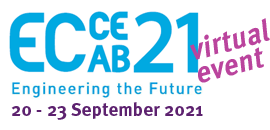

|
|
From deterministic chaos in multiphase reactors to (total chaos in) politics Jiří Drahoš, |
|---|
The personal story of a chemical engineer who spent most of his research life in the field of hydrodynamics of multiphase chemical reactors, chaired the European Federation of Chemical Engineering and the Czech Academy of Sciences, ran for president of the Czech Republic, and currently serves as the Chair of the Committee on Education, Science and Culture of the Czech Senate. The presentation looks at how an engineering background helps making good decisions for the society.
___________________
|
|
P. V. Danckwerts Memorial Lecture 2021 Michael Doherty
|
|---|
Chemical engineering industrial practice has always forged ahead to create new processes and products driven mostly by the pull of society’s desire for improved quality of life. In recent decades, the value of chemical engineering principles has been increasingly recognised in pharmaceutical manufacturing, which is leading to more efficient processes with better control and operations. More recently, a push towards continuous manufacturing has called for ever more insights and action from chemical engineers. The transition from batch to continuous manufacturing provides a vehicle to showcase the impact on work flows and technology development via digital design of drug products and manufacturing processes.
___________________
|
|
Innovating through the global pandemic – from rapid reaction to long term optimisation across the clinical supply chain Luisa Freitas Dos Santos |
|---|
The global pandemic has impacted supply chains across every single sector of the economy, and it certainly impacted the pharmaceutical industry both the commercial manufacturing and supply of medicines as well as Research and Development of new medicines, including the challenging need for accelerated development of new vaccines and therapeutics for Covid-19. Being able to respond to such multidimensional challenges instigated numerous innovative approaches, with new ways of working in laboratories and manufacturing plants implemented almost overnight, and many tools and technologies being rapidly deployed. Technology solutions implemented in process development, scale up, manufacturing, packaging, labelling and distribution of medicines embraced since last year will no doubt contribute to further digitalisation and optimisation across all the nodes in the clinical supply chain. Some examples of these approaches and technologies and how they have been used to ensure critical drug development and supply continued and new trials were enabled through the pandemic will be presented..
___________________
|
|
Strategies to reduce CO2 emissions in the chemical industry Melanie Maas-Brunner |
|---|
The chemical industry has a vital role to play in the climate discussion. On the one hand, chemical products are essential to many low-carbon technologies. On the other hand, chemical production is energy and CO2-intensive and the processes have been optimized for many decades. Therefore, BASF has launched a comprehensive Carbon Management Program and pursues a multi-pronged approach to cut its emissions significantly. The challenges and opportunities of this transformation will be presented and discussed.
___________________
|
|
Emily Nguyen |
|---|
The global pandemic has caused long-lasting and far-reaching disruptions to business as usual for companies across industries and around the world. This is true in particular across the manufacturing sector. Emily Nguyen will discuss how manufacturing organizations can leverage data to make their supply chains more agile and responsive to market changes, drawing on experience across pharma, biotech, oil and gas, and many other industries. With a modern data strategy and learnings from the pandemic, organizations will be ready to tackle the next big challenges, whether due to a pandemic, increasing trade regionalization, or emerging environmental regulation.
as confirmed in March 21